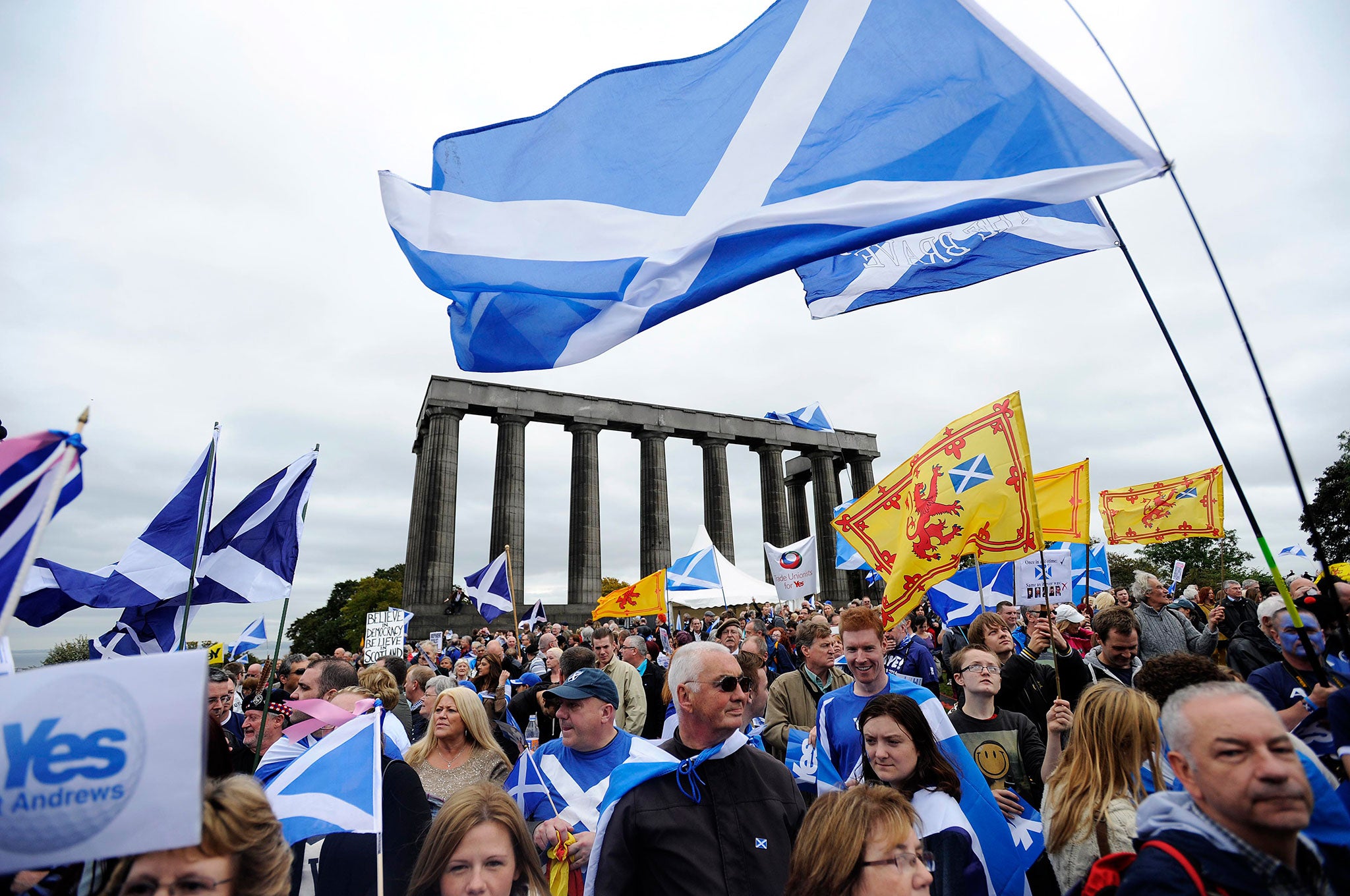Scottish independence: A Scottish state is perfectly viable. Just look at Denmark
But currency union is a key issue: if Scotland keeps the English pound, Westminster would be its banker and where’s the independence in that?

Your support helps us to tell the story
From reproductive rights to climate change to Big Tech, The Independent is on the ground when the story is developing. Whether it's investigating the financials of Elon Musk's pro-Trump PAC or producing our latest documentary, 'The A Word', which shines a light on the American women fighting for reproductive rights, we know how important it is to parse out the facts from the messaging.
At such a critical moment in US history, we need reporters on the ground. Your donation allows us to keep sending journalists to speak to both sides of the story.
The Independent is trusted by Americans across the entire political spectrum. And unlike many other quality news outlets, we choose not to lock Americans out of our reporting and analysis with paywalls. We believe quality journalism should be available to everyone, paid for by those who can afford it.
Your support makes all the difference.A solitary opinion poll showing the “yes” vote edging fractionally into a majority has focused minds like nothing else in this campaign on the economic and financial consequences of Scotland voting for independence next week.
The immediate impact of Scotland breaking away from the union would be significant, both for Scotland and the rest of the UK. But it is difficult to say what those consequences would be because much would hinge on the post break-up institutional settlement.
The market reaction to the shock opinion survey yesterday was most pronounced in currency trading, with sterling falling like a tossed caber. And it’s the question of what currency an independent Scotland would use that is probably most critical.
A currency union has been ruled out by both the Coalition and Labour. An independent Scotland, as Alex Salmond reminds us, can simply carry on using the pound unilaterally. But then Edinburgh would have no influence over interest rates or the other tools of monetary policy. That combination of national responsibility and monetary dependency has been painful for struggling countries of the eurozone periphery in recent years. “[Scotland] would end up becoming Spain without the sunshine,” quipped the Nobel laureate Paul Krugman yesterday.
Is Westminster bluffing? If Scots voted Yes would there, in the end, be a political deal on sharing the pound? Perhaps. But Westminster would inevitably require strict oversight of Edinburgh’s tax and spending decisions and financial regulation as the price of doing such a deal. Otherwise, Edinburgh could spend liberally and tolerate financial recklessness in the knowledge it would be bailed out by the common liquidity support facilities if crisis stuck.
To put it bluntly, Scotland could max out the joint credit card and then demand the bill be split when it arrived.
Yet if Scotland did accept a high level of Westminster oversight for its fiscal policies, many Scots might question the point of voting for independence since Scotland would then, arguably, have autonomy in name only.
If Scotland did vote Yes there would be fraught haggling over the appropriate division of national liabilities (the national debt) and assets (the state’s gold reserves, the remaining reserves of North Sea oil). But the currency question would dominate because it would determine the underlying framework for the new country’s economy.
Scotland’s sizeable financial services sector is, understandably, keen to know who will be regulating it. Uncertainty over that question helped to depress the shares of Scotland-based firms such as the Royal Bank of Scotland.
Corporate investment, which has been disappointingly weak for a decade, could flatline amidst the uncertainty thrown up by a Yes vote. That wouldn’t help either Scotland or the rest of the UK recover from the biggest slump since the 1930s.
But in the longer term what would Scottish independence mean? Some of the wilder prophecies of ruin are unconvincing. The prosperity of other similarly sized states such as Ireland and Denmark shows an independent Scotland is perfectly viable. Scotland has a structural deficit and Mr Salmond’s Scottish nationalists would ultimately need to balance outgoings with incomings. But the same is true of the rest of the UK. Scotland’s North Sea oil money will eventually run out but the country still has a well-educated population. Its future productivity growth and prosperity rests on those foundations of human capital.
As for the rest of the UK, the large current account deficit could widen without the boost from North Sea oil and gas revenues. But this is a fragile crutch in any case because those resources are in long-term decline. Economic life for the UK, divorced from Scotland, would not grind to a halt.
But would Scots, in the end, be economically better off together or apart? The answer depends on what the Scots themselves did with independence, and the competence of their future political leaders.
Join our commenting forum
Join thought-provoking conversations, follow other Independent readers and see their replies
Comments